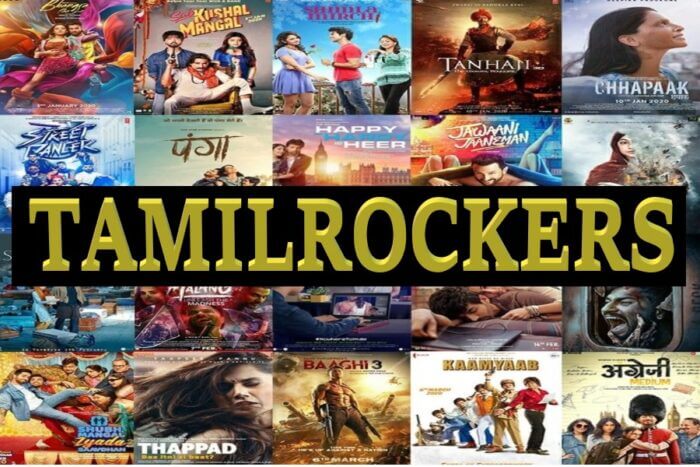Exploring Tamilrockers: Impact, Controversy, and the Changing Landscape of Piracy

Introduction
Tamilrockers is a notorious name in the world of online piracy, particularly in India. Originally known for leaking Tamil-language movies, it has since expanded to share films in multiple languages, including Hindi, Telugu, Malayalam, and even Hollywood blockbusters. The platform has caused substantial losses to the entertainment industry and has faced multiple legal actions. Yet, it has remained resilient, often resurfacing under different domains and names. This article explores the rise of Tamilrockers, its impact on the film industry, and the broader implications of online piracy.
The Rise of Tamilrockers
Tamilrockers began as a small, underground forum where people shared Tamil-language movies soon after their theatrical release. As its popularity grew, so did the scale of its operations. It became one of the most prominent piracy websites in India, catering to a large audience across different linguistic backgrounds. Tamilrockers eventually evolved into a comprehensive piracy hub, providing not only films but also web series, TV shows, and even exclusive digital content from various streaming platforms.
One of the primary reasons behind the popularity of Tamilrockers is its ability to provide high-quality pirated content for free. In a country where online streaming subscriptions may not be affordable for everyone, piracy websites like Tamilrockers became an accessible alternative for movie enthusiasts.
The Methods Behind Tamilrockers’ Operations
Tamilrockers operates with a network of anonymous individuals who manage and update the site regularly. The content is sourced through multiple methods:
- Camcording: In some cases, members record films directly from theaters, leading to low-quality “cam prints.”
- Digital Theft: Occasionally, hackers gain access to digital copies of movies or web series, allowing for high-definition leaks soon after release.
- Web Ripping: Tamilrockers also pirates content from streaming services using web-ripping software, which captures video content directly from the source.
The website often changes its domain name, making it difficult for authorities to permanently block it. From .com to .mx and even .ph domains, Tamilrockers’ adaptability has allowed it to evade restrictions.
Legal Battles and Crackdowns
The Indian government and film industry associations have undertaken various efforts to curb Tamilrockers’ operations. The Cinematograph Act, 2019, introduced by the Indian government, makes camcording and unauthorized recordings punishable offenses, with imprisonment and hefty fines. Despite this, Tamilrockers continues to find ways around legal barriers, partly because of loopholes in internet regulation and the complexities of cross-border jurisdiction.
Several law enforcement agencies have arrested individuals suspected to be involved in Tamilrockers’ operations, but the network’s decentralized and anonymous structure has made it challenging to dismantle completely. The site operates similarly to other torrent-based networks, which rely on peer-to-peer file sharing rather than a single, centralized server.
Impact on the Film Industry
The impact of Tamilrockers on the Indian film industry has been significant, with millions of dollars in estimated losses. Producers and filmmakers often spend years and large budgets on creating movies, and early leaks can severely affect their box office earnings. Some films have seen their collections cut by as much as 50% due to pirated versions released before or shortly after the official premiere.
Streaming services like Netflix, Amazon Prime Video, and Disney+ Hotstar have also suffered due to Tamilrockers, as exclusive web series and films intended for paid subscribers get leaked on the site. This has led to reduced revenue and has made investors cautious about funding large-scale projects due to the potential for financial loss.
The Psychological Appeal and Audience Demand
The popularity of Tamilrockers highlights a broader cultural issue: the high demand for free and easily accessible entertainment. This demand is fueled by factors such as limited legal streaming options, high subscription costs, and the rapid consumption of digital content. For many users, the appeal of Tamilrockers lies in its ability to offer newly released movies at no cost, allowing them to bypass paywalls and geographical restrictions.
While some people understand the ethical implications of piracy, others view it as an alternative means to access content they would otherwise be unable to afford. In this sense, Tamilrockers has filled a gap in the entertainment landscape, albeit through illegal means.
Government and Industry Response
In response to the challenges posed by Tamilrockers, the film industry has started to adapt and innovate:
- Simultaneous Online Releases: Some filmmakers have opted to release films on digital platforms simultaneously with their theatrical release, reducing the likelihood of camcording leaks.
- Affordable Streaming Options: Streaming services have begun offering budget-friendly mobile plans to make legal content more accessible, particularly in emerging markets like India.
- Public Awareness Campaigns: Many organizations, including the Motion Picture Association, have run campaigns to educate the public about the consequences of piracy on the creative industry.
Additionally, government agencies are working to refine policies and strengthen technological countermeasures to prevent piracy. For example, online platforms now employ advanced watermarking and encryption techniques to make it easier to trace leaked content.
The Future of Tamilrockers and Online Piracy
While Tamilrockers continues to operate under changing domain names, the increasing sophistication of anti-piracy technology and legal initiatives might eventually curtail its reach. However, as long as there is demand, piracy websites will likely find new ways to distribute content, making it a continuous game of cat-and-mouse between authorities and piracy platforms.
For the film industry, the real solution may lie in creating an ecosystem where quality content is both affordable and accessible. Reducing the reliance on physical distribution and focusing on faster, more secure digital releases might help minimize the impact of piracy in the long run.
Conclusion
Tamilrockers has had a lasting impact on the entertainment industry in India, highlighting the persistent challenges of online piracy in a digital age. While it has found temporary solutions to evade legal repercussions, the combined efforts of the film industry, government, and streaming services may eventually weaken its influence. However, until the root causes of piracy—accessibility and affordability—are adequately addressed, sites like Tamilrockers will continue to exploit these gaps in the market.
(FAQs) About Tamilrockers
1. What is Tamilrockers?
Tamilrockers is a website known for illegally sharing pirated copies of movies, TV shows, web series, and other entertainment content. It initially focused on Tamil-language films but has since expanded to include Hindi, Telugu, Malayalam, and even Hollywood films.
2. How does Tamilrockers work?
Tamilrockers operates through a network of anonymous contributors who upload pirated content. The site often changes its domain name to avoid being blocked and uses peer-to-peer sharing methods like torrents to distribute files. This decentralized system makes it challenging for authorities to shut it down permanently.
3. Why is Tamilrockers illegal?
Tamilrockers distributes copyrighted material without permission from the content creators or production companies, which violates copyright laws. This form of piracy is illegal in most countries, including India, as it causes financial losses to the entertainment industry.
4. How does Tamilrockers affect the film industry?
Tamilrockers has a significant negative impact on the film industry. By providing movies for free before or shortly after their release, it reduces box office revenue, affecting both the earnings of the filmmakers and the funding available for future projects. Early leaks can also affect the public’s motivation to watch films in theaters or pay for streaming services.
Also Read: Exploring Movierulz: A Closer Look at the Controversial Online Streaming Platform
5. Has the government taken action against Tamilrockers?
Yes, the Indian government has made several attempts to shut down Tamilrockers. Laws like the Cinematograph Act, 2019, make piracy punishable by fines and imprisonment. Despite this, Tamilrockers often finds ways to evade restrictions by using different domain names and alternate sites.
6. Is it safe to download movies from Tamilrockers?
No, downloading movies from Tamilrockers or any similar piracy site is not safe. These sites often contain malicious ads or links that can lead to malware, compromising users’ personal data and device security. Additionally, using these sites for downloading or streaming pirated content is illegal and may lead to legal consequences.
7. Why is Tamilrockers still active despite legal actions?
Tamilrockers remains active because it constantly changes its domain names and mirrors its content across multiple sites. This makes it challenging for authorities to track and block it consistently. The site also operates outside centralized control, using anonymous contributors and peer-to-peer networks to distribute content.
8. Are there legal alternatives to Tamilrockers?
Yes, there are several legal streaming services, such as Netflix, Amazon Prime Video, Disney+ Hotstar, Zee5, and SonyLIV, which offer a wide selection of movies and shows in multiple languages. These platforms often provide budget-friendly subscription options and high-quality streaming for those seeking legal alternatives.
9. Can I face legal consequences for using Tamilrockers?
Yes, accessing, downloading, or distributing pirated content is illegal in many countries. In India, copyright infringement can lead to legal actions, including fines and imprisonment. Some internet service providers (ISPs) also block access to piracy websites and may track users attempting to access these sites.
10. How do Tamilrockers and similar sites impact streaming platforms?
Piracy sites like Tamilrockers affect streaming platforms by leaking exclusive content that is meant to be available only to paid subscribers. This reduces subscriber numbers and revenue for these platforms, potentially impacting their content quality and investment in original productions.
11. What measures do content creators take to prevent piracy?
Content creators and streaming platforms use advanced anti-piracy technologies, such as watermarking, encryption, and secure digital distribution channels, to prevent piracy. Some producers also release movies on streaming platforms soon after or alongside theater releases to minimize the impact of piracy.
12. Is Tamilrockers the only piracy website for movies?
No, Tamilrockers is not the only site; there are many others like Movierulz, Filmywap, and 123Movies that also distribute pirated content. However, Tamilrockers is one of the most prominent and widely known, especially in India.
13. Why do people still use Tamilrockers despite the risks?
Many users access Tamilrockers because it offers free, quick access to the latest movies and shows, particularly those that may not be available in theaters or on affordable streaming platforms. However, the demand for piracy highlights broader issues like high subscription costs and limited content availability.
14. How can I support the film industry legally?
The best way to support the film industry is to watch movies through legal channels, such as theaters and licensed streaming platforms. Avoiding piracy ensures that creators receive their deserved compensation, allowing them to continue producing high-quality content for audiences.
15. What is the future of Tamilrockers and online piracy?
With improved anti-piracy technologies and awareness campaigns, the future of piracy sites like Tamilrockers may be limited. However, as long as there is demand, piracy will remain a challenge. The solution lies in making content more accessible and affordable while continuing to enforce strict legal measures against piracy.





